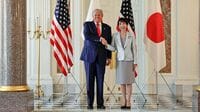By Leika Kihara
TOKYO (Reuters) - Bank of Japan Governor Haruhiko Kuroda said on Tuesday the central bank was ready to ramp up stimulus if sharp yen rises hurt the economy and derail the path towards achieving its 2 percent inflation target.
The dollar received a mild lift versus the yen after Kuroda's comments, which come at a time when many central banks - including the U.S. Federal Reserve - have turned cautious in the face of rising global economic risks.
But the BOJ chief said the central bank would carefully weigh the benefits and costs of any further policy easing, suggesting that the hurdle for topping up stimulus would be high given how financial institutions' profits have been hurt by years of near-zero interest rates.
"If (currency moves) are having an impact on the economy and prices, and if we consider it necessary to achieve our price target, we'll consider easing policy," he said.
Kuroda repeated that possible easing tools the BOJ could deploy included cutting short- and long-term interest rates, expanding asset buying or accelerating the pace of money printing.
"Whatever we do, however, we need to carefully balance the benefits and the costs of the step such as the impact on financial intermediation and market functioning."
Kuroda made the remarks in response to a question by an opposition lawmaker on whether the BOJ had the necessary tools to boost stimulus to counter the pressure from a sharp yen rise.
Japanese government bond prices turned higher and the dollar rose briefly on the comments. The greenback last stood little changed at 110.655 yen after hitting 110.45 earlier in the day.
The BOJ faces a dilemma. Years of heavy money printing has dried up market liquidity and hurt commercial banks' profits, stoking concern over the rising risks of prolonged easing.
And yet, subdued inflation has left the BOJ well behind its U.S. and European counterparts in dialling back crisis-mode policies, leaving it with little ammunition to battle an abrupt yen spike that could derail an export-driven economic recovery.
Fears of a global slowdown has added to the BOJ's headaches and shifted the market's attention away from the likelihood of a future exit from easy-policy, especially as many major central banks have shifted their position over recent months towards an accommodative stance.
Kuroda said the BOJ had no plans now to stop or review its purchases of exchange-traded funds (ETF), despite growing criticism from market players that the central bank's huge presence was distorting the market.
But he added the BOJ will scrutinise the most appropriate means to balance the pros and cons of its policy.
"We will continue our ETF buying while taking into account market moves and the impact on financial institutions, as well as economic and price developments," Kuroda said.
Under a policy dubbed yield curve control (YCC), the BOJ guides short-term rate at minus 0.1 percent and long-term rates around zero percent. It also buys government bonds and risky assets like ETFs as part of its massive stimulus programme.
(Reporting by Leika Kihara; Editing by Chang-Ran Kim & Shri Navaratnam)



